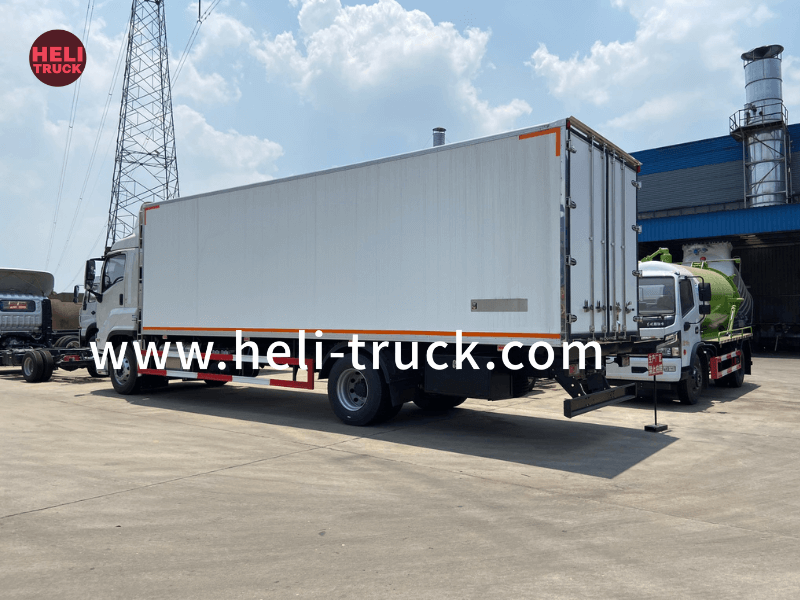Introduction
Proper waste management is a critical aspect of maintaining cleanliness and hygiene in any community. Garbage compactor trucks play a vital role in collecting and transporting waste efficiently. However, the operating costs associated with these trucks can be a significant concern for waste management authorities and companies. In this article, we will explore the advantages of investing in garbage compactor trucks with low operating costs. We will discuss the various features and technologies that contribute to reducing operational expenses while enhancing the effectiveness of waste collection and disposal.
Understanding Garbage Compactor Trucks
Garbage compactor trucks, also known as refuse compactors or waste compactors, are specially designed vehicles used for collecting and compacting solid waste materials. These trucks are equipped with a hydraulic compactor system that compresses the waste to maximize the amount of garbage that can be transported in each trip. By reducing the volume of waste through compaction, these trucks help optimize the collection process, minimize the number of trips required for disposal, and improve overall operational efficiency.
Key Components of Garbage Compactor Trucks
1. Compactor Body: The compactor body is the main container of the truck where the waste is loaded and compacted. It is typically made of durable materials such as steel or aluminum to withstand the rigors of waste collection operations. The compactor body is designed to seal tightly to prevent leakages and odors during transportation.
2. Hydraulic System: The hydraulic system powers the compaction mechanism of the truck. It consists of hydraulic cylinders, pumps, and controls that operate the compactor blade or plate to compress the waste. A well-designed hydraulic system is essential for efficient compaction and reliable performance of the garbage compactor truck.
3. Loading Mechanism: Garbage compactor trucks are equipped with a loading mechanism, such as a rear-loading hopper or a side-loading arm, to facilitate the collection of waste from bins or containers. The loading mechanism should be easy to operate and maneuver to ensure quick and efficient waste pickup.
4. Control Panel: The control panel of a garbage compactor truck allows the operator to monitor and adjust the compaction process. It provides information on the compaction level, hydraulic pressure, and other vital parameters to ensure optimal performance and safety during operation.

Benefits of Garbage Compactor Trucks with Low Operating Costs
1. Reduced Fuel Consumption: One of the primary operating costs of garbage compactor trucks is fuel consumption. Trucks that are equipped with fuel-efficient engines and advanced powertrain technologies can significantly reduce fuel expenses. Low operating costs translate to savings for waste management companies and contribute to a more sustainable waste collection process.
2. Efficient Compaction System: Garbage compactor trucks with advanced compaction systems can achieve higher compaction ratios, allowing more waste to be transported in each trip. This efficiency results in fewer trips to the disposal site, saving time and reducing labor costs associated with waste collection.
3. Durable Construction: Investing in garbage compactor trucks with high-quality materials and construction ensures longevity and durability. Trucks that are built to last require less frequent maintenance and repairs, leading to lower operating costs over the vehicle's lifespan.
4. Innovative Technologies: Some garbage compactor trucks are equipped with innovative technologies such as telematics systems, GPS tracking, and onboard diagnostics. These features not only improve operational efficiency but also enable proactive maintenance scheduling and real-time monitoring of the vehicle's performance, contributing to cost savings in the long run.
5. Environmental Benefits: By reducing the number of trips required for waste collection and disposal, garbage compactor trucks with low operating costs help minimize carbon emissions and environmental impact. Sustainable waste management practices are essential for preserving the planet's resources and reducing pollution.
Case Studies and Success Stories
Several waste management authorities and companies have successfully implemented garbage compactor trucks with low operating costs to improve their waste collection operations. For example, a city in Europe invested in a fleet of fuel-efficient garbage compactor trucks equipped with advanced compaction systems. By reducing fuel consumption and increasing operational efficiency, the city was able to save millions of dollars in operating costs annually.
In another case study, a waste management company in Asia adopted garbage compactor trucks with durable construction and innovative technologies. The company reported significant reductions in maintenance expenses and improved overall fleet performance. The trucks' ability to compact waste effectively and minimize trips to the landfill resulted in cost savings and enhanced environmental sustainability.
truck mounted cranes with low operating costs offer numerous benefits to waste management authorities and companies seeking to optimize their waste collection operations. By investing in trucks with fuel-efficient engines, advanced compaction systems, and innovative technologies, organizations can achieve cost savings, improve operational efficiency, and reduce environmental impact. The key components and features of garbage compactor trucks play a crucial role in minimizing operating expenses while maximizing the effectiveness of waste management processes. As the demand for sustainable waste management solutions continues to grow, investing in garbage compactor trucks with low operating costs is a strategic decision that can lead to long-term savings and operational excellence.
